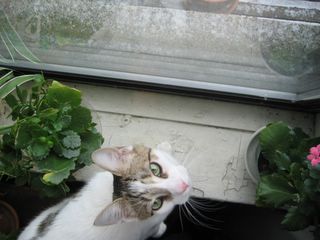A news report on the weather is the easiest slam-dunk-of-a-news-report on TV. Older people love to obsess over the weather both because the risk of falling is greatly heightened and... well, they just love it. My grandmother saved all of her calendars because she liked to record the high and low temperatures every day. For outdoors men, the weather is a big deal. My dad hunts and is constantly buzzing around his rural property so knowing the next day's weather can be a good idea. In addition, my parents live in the the middle of nowhere so a moderate snow storm can mean 24 (perhaps even 36) hours of inconvenience. People who might live on a remote mountaintop in Colorado can get stuck for weeks. Hey, I've seen The Shining - I know that extended snow storms can result in a dangerous bout of cabin fever. This, however, is NYC. Doing an investigate report in Chelsea to report on how 'disrupted' people feel is a management choice that, from a reporter's standpoint, should be reserved for public-access television (along with extended diatribes regarding Star Wars memorabilia and/or corporate police-states).
As the hours of live, satellite coverage began to pile upon one another, it became evident to me that something far different than the average news report was being conducted. I wanted to call it narcissism, but that felt simplistic. It isn't solely about being seen on the tube. If a neighborhood robbery, murder, or fire makes it to the local news, the entire neighborhood can feel validated. Events gain a reality. There's something about being near an event that gains attention outside the community. A person might show up for work the next day and when somebody mentions that they saw it on the news, an immediate street credibility goes to anybody who can claim relations. He can can say that he was there (or at least in the vicinity of 'there'), present during or around the time of the event. When a local event reaches the national news, you hit the Big Time on the Validity List. Friends and enemies from across the country learn of the event and relate it to you because you were THERE... or at least in the vicinity of 'there'.
What an inane report like the Chelsea incovenience report does is give a significance to life. That restaurant you went to 3 months ago is sitting in the background of the shot. That weird guy who works at the newspaper stand gets 2 sentences of fame as he talks about how pretty the snow looks. Your life experiences connect up with some larger, macro-experience that every schlump watching the local news might relate to and, thus, confirm.
I'm as guilty as any other American. When a student shooting happened in my college, science building, I raced home like every other soul and glued myself to the local and national news to see my moment in time get validated all across the country. I would sit in those dorm hall groups, talking about the incident and try to manufacture some story that might put myself somehow closer to the danger of the event. 'I just saw that student in the hall the week before.' 'I was supposed to have a discussion class on the second floor that night but our T.A. cancelled it at the last minute.' Never mind that I had never met the student in my life or that my discussion class was on Thursday and not Tuesday, when the incident occurred. The important thing was that I was CLOSE to it.
Why do we do it? Why do we watch ourselves? Is it because we just can't get enough of the things we've seen before or which never directly affect us? I keep thinking of a quote from Joseph Campbell on his PBS series The Power of Myth.
With all the media I take in every day, I feel as if I am swimming through an manufactured reality. I have this constructed atmosphere of music I carry around with me. My computer games render abstracted realities of sports and first-person shooters. Film and television allow me to watch other people engage life in clearly-defined, tangible trails of narration. How can a person expect to process events of his/her life in any sort of present fashion? With jobs, debts, expectations, career tracks, and relationship commitments, how many rapturous moments of life do I experience? On the other hand, hundreds of times a year I vicariously experience it through rock n' roll, movies, games, and televised sporting events.
People say that what we are all seeking is a meaning for life. I don't think that's what we're really seeking. I think what we're seeking is an experience of being alive... so that we actually feel the rapture of being alive.
For those of us not listening to ourselves our fulfilling our needs, how unnatural is it to need our experiences to be confirmed and re-lived on T.V. - perhaps the primary place of our simulated raptures?
Pippin enjoys his First Snow

No comments:
Post a Comment